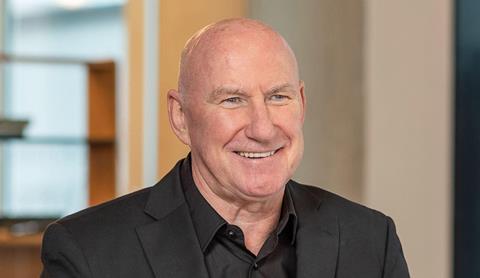There is plenty of money, projects in the pipeline and people are gagging to get back up to speed. The end of an appalling 12 months is in sight, says Jack Pringle

Are you ready for lift off? We’re coming out of winter, the vaccination programme is storming ahead, schools are about to go back and people are gagging to get going again.
Companies cannot sit on their hands forever, so managers are either about to give stalled projects the go-ahead or are commissioning new ones for the restart. A straw poll of offices shows that architects are getting busy again.
Some businesses have flourished in the pandemic – BDP has reported record profits recently, presumably from their healthcare and pharma sectors. Most companies have been wounded as their markets have shrunk and some, particularly in the hospitality and travel sectors, have faced existential difficulties.
There is a huge amount of money out there, in private equity, VC funds and sovereign wealth looking for good investments
But even these will bounce back. There is a huge amount of money out there, in private equity, VC funds and sovereign wealth looking for good investments.
One of my friends in private equity says they have never been busier, buying up businesses in trouble to invest in them for a relaunch. Another friend heads a distressed assets business and tells me of the trillion-dollar ESG (environmental, social and governance) funds hungry for suitable new investments.
And then there is the shovel-ready infrastructure projects the government has promised. There is going to be a lot of work to do as we play catch-up in our post-pandemic world.
What will that world be like? Nine months or so ago I think most of us thought that we would have the pandemic for a while, then it would be “beaten” and go away. But now we know better: the vaccines are great, but not 100% effective and no one is safe until the whole world is safe. That’s seven billion vaccinations times two… 14 billion jabs.
We are going to have to live and work with this virus for a few years
It’s going to take a while. We are going to have to live and work with this virus for a few years. Then there is the prospect of mutations that require new vaccines – another 14 billion jabs.
Although the UK economy may recover more quickly than the rest because of our success in vaccination, it cannot truly recover until our trading partners recover too. And that means Europe, for example, who are about three months behind us due to their slow vaccine procurement process.
We are also going to have to grasp some uncomfortable social nettles. Vaccine passports may not be very British but, if you want to go to Greece, you may have to get one.
Living with the virus, we are going to have to adopt yet another new lifestyle, workstyle and recreation habits. Working from home has been a good stopgap, it has worked better than expected and some, with nice houses, even quite like it. But for others it has been sub-optimal.
That young graduate who signed up with a firm to learn their profession in a vibrant office that would also form the core of their social life has not enjoyed working from their rented bedroom in someone else’s flat. So, when planning the future of a competitive business, it will come back to the war for talent and those who are offering a great office, well set up for the post-covid world, will win out.
Having said that, the fundamental purpose of the office will be redefined for meeting, training, inspiring and socialising. We will adopt a “smart workstyle”, not commuting at peak times when an hour or so of desk work can be done from home before or after travel.
A huge proportion of workers are in their twenties; they are the engine room – and they need real-time guidance and leadership
Some will be reluctant to come back. Last summer one CEO told me he had to instruct senior staff to get back to the office as they had a responsibility to lead their teams, mentor and train their staff. In London the average age of staff at most biggish firms is 32. So, a huge proportion are in their twenties, they are the engine room, and they need real-time guidance and leadership, quickly and frequently – not on the daily communal Zoom call.
The very physicality of the office will change. No-touch operated doors, lifts and loos will be demanded. There will be no shared equipment that you touch. Workstations will be sanitised between users and we won’t sit in serried ranks of desks only 1,600mm apart.
It will be the covid-proof social office, which sounds like a contradiction in terms, and every office in the country will have to be re-laid out. Perhaps this will be on a medium-term temporary basis, say for a year or two, so it will have to be economical and flexible as the long-term solution is not clear yet. Flexible furniture solutions, that can be adapted in a couple of years, will be preferred over built solutions.
So, in the next month or two, the starting pistol will be fired. What an amazing year we will have rebuilding our economy.
Jack Pringle has been principal and EMEA regional director at Perkins+Will for eight years but is setting up a new practice



























1 Readers' comment